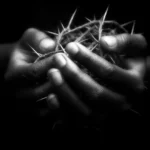Most people don’t leave a church over a single event.
They leave after a series of moments—small, subtle, easily dismissed on their own. A shift in a conversation. A change in posture. A relationship that suddenly becomes guarded. A question that gets redirected rather than answered.
These moments often defy explanation. There’s no loud alarm. No formal statement. Just a quiet undercurrent of discomfort that’s hard to name—but impossible to ignore.
In one such case, a member of a young adults group later learned that the pastor had gone twelve full sessions without speaking to her at all—despite being present. The silence wasn’t addressed. It wasn’t explained. But it was felt. It marked a change she couldn’t quite name, but also couldn’t deny.
Over time, she was told that she had “multiple opportunities” to express concerns, but had failed to reach out. This critique came only after leadership had already withdrawn relational warmth and accessibility—effectively reversing the narrative. She may have sensed the tension. She may have stayed quiet out of confusion.
“They have healed the wound of my people lightly, saying, ‘Peace, peace,’ when there is no peace.” — Jeremiah 6:14
But by then, silence had become mutual, not neutral.
This kind of dissonance is often the first clue that a culture of control, fear, or image-management has taken root. And it is in these earliest moments that the seed of spiritual confusion is planted—not because a person has left the truth, but because they begin to feel isolated from it.
Discernment’s First Stirring
Spiritual confusion is not always the result of rebellion. Sometimes, it is the result of discernment trying to make sense of dysfunction.
In the early chapters of 1 Samuel, a young boy is serving in the tabernacle under the leadership of Eli—a respected figure in Israel. Everything appears orderly. Sacrifices are being made. Priests are in position. But beneath the surface, something is deeply broken.
Scripture says: “The word of the Lord was rare in those days; visions were infrequent.” — 1 Samuel 3:1
Corruption had taken root in the spiritual system. Eli’s sons, who served as priests, were abusing their role and dishonoring the Lord. But no one was speaking up. The dysfunction was hidden in plain sight.
It is in this setting that Samuel begins to hear a voice—something unexplainable. At first, he assumes it’s just his leader calling. But as the pattern continues, it becomes clear: what he’s sensing isn’t imagined. It’s real. And it’s from God.
“Do not believe every spirit, but test the spirits to see whether they are from God…” — 1 John 4:1
His experience affirms a vital truth: not all spiritual discomfort is disobedience. Sometimes, it’s discernment awakening in silence.
If something feels off in a church environment—even when no one else names it—that discomfort may not be a sign of immaturity. It may be the beginning of insight.
Observing God Through Discomfort
When something feels off in a spiritual environment, the impulse is often to dismiss it: “Maybe it’s just me.”
But Scripture teaches that God’s Spirit often speaks in subtle ways—through conviction, through discomfort, through holy unrest.
Not every uneasy moment is a warning sign. But when patterns of withdrawal, silence, or deflection emerge—especially from leadership—it’s not wrong to ask questions. It’s wise.
In Samuel’s story, the voice didn’t come through the established leadership. It came quietly, directly, and repeatedly. And only by pausing to listen did Samuel begin to understand what was happening around him.
Likewise, if you’re in a setting where confusion is growing, clarity begins not by confronting everyone else—but by listening to what God is saying to you.
“Your ears will hear a word behind you, ‘This is the way, walk in it…’” — Isaiah 30:21
But this is also true: if you observe something off in someone else’s relationship—between a leader and a member, or among those in authority—don’t ignore it.
In one church, a deacon began to feel uneasy about the dynamic between a male pastor and a young female member. The discipleship relationship seemed unusually close. There were blurred lines, long meetings, and growing emotional dependence. He approached the pastor to express his concern.
The pastor reassured him that everything was appropriate. And though the deacon still felt uncomfortable, he pushed down that discernment—because in that church culture, questioning the pastor felt like crossing a line.
“There is a time to keep silence, and a time to speak.” — Ecclesiastes 3:7
Later, when the relationship collapsed, the fallout affected more than just those directly involved. It shook the church. And the deacon admitted that, looking back, he wished he had pressed further—not in accusation, but in care.
Discernment isn’t just for self-preservation. It’s a call to accountability—for the sake of others.
Sometimes the whisper of the Spirit is an invitation to speak—not to accuse, but to clarify. Because when good people stay silent, broken systems continue unchecked.
Solid food is for the mature… who have their senses trained to discern good and evil.” — Hebrews 5:14
A Sacred Instinct
Discernment is not disloyalty. Asking questions is not rebellion. That quiet sense that something is off may not be a threat to the church—it may be God’s grace to it.
If you’ve ever walked into a room and felt the atmosphere shift… if you’ve ever been silenced by someone’s avoidance or left wondering why the warmth is gone… you’re not imagining it. Those moments matter. They may be the Spirit’s way of alerting you that all is not well.
And here’s the good news: God does not leave His people defenseless. He equips us with His Spirit so that even when human leaders fail, His presence still guides, protects, and comforts. What feels like isolation can actually become invitation—an invitation to lean more closely into the voice of the Shepherd who says, “My sheep hear My voice, and I know them, and they follow Me” (John 10:27).
So if you sense something is off, don’t dismiss it as weakness or disloyalty. Bring it before the Lord. Test it against Scripture. Share it with wise and trusted believers. Because long before someone is pushed out of a community, they often feel the shift in the room. And naming that moment is not division—it’s the beginning of discernment, and sometimes, the first step toward freedom.
Think it Through
- Have I ever sensed something was off in a spiritual environment but ignored it out of fear or self-doubt? What made me stay silent?
- Have I ever observed an unhealthy dynamic between people in leadership and felt unsure how—or if—I should respond?
- What is the difference between spiritual suspicion and spiritual discernment? How can I tell the difference?
- What voices or systems have made me feel like asking questions is disloyal or unspiritual? Are those voices biblical—or protective of something else?
- What would it look like to prayerfully honor my discomfort, rather than push it down?
Break Point Collection
In the next article, we’ll explore how spiritual confusion deepens when people in authority begin to redefine reality, dismiss questions, and label concerns as disobedience. It’s a tactic known as gaslighting—and we’ll look at what it feels like when it comes from the people who claim to speak for God. Don’t miss: Gaslighted by God’s People
Devotional Song
Listen before, during and after reading the devotional.












Recent Comments